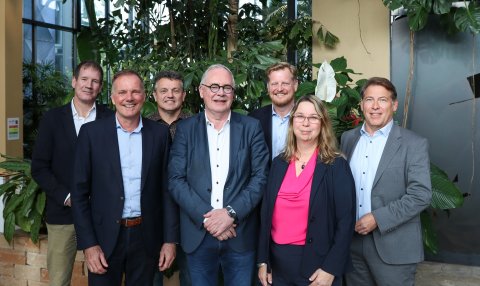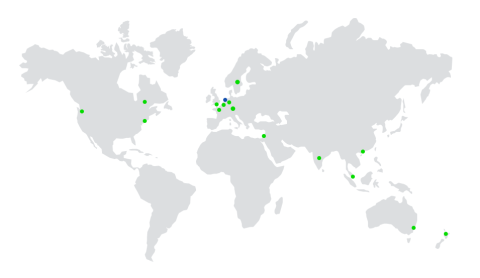
“Business as usual” is quite possibly becoming an outdated phrase. With digital business throwing a wrench in the collective way everyone does business, new skillsets are needed for once clearly defined roles, such as facility management, IT, HR, and finance. As these departments adapt, they are increasingly finding themselves in direct collaboration with each other as new technologies and platforms develop.
For example, systems such as power, lighting, heating, cooling, plumbing, fire alarms, security, and circulation were traditionally overseen by the Operations & Maintenance department. However, as all these devices and functions become internet-connected, they are no longer just systems to manage. Instead, they are becoming their own sources of information, as well as users of that information.
That creates tough, new questions. With traditional FM systems now creating vast amounts of data, when should IT get involved? Who should own the Internet of Things? And how should we assign control and responsibility for these new kinds of building equipment and systems? Are we facing a new period of clashes over the information itself? And how do we address questions of legality, ethics, privacy and security that until now have not been part of the equation?
Evolving roles to keep up with IoT
To begin, we must keep in mind that building equipment and systems are only a subset of the Internet of Things, a phenomenon that includes all manner of personal and corporate property.
For instance, we have watched as our cars transformed from simply mechanical tools of transportation into, essentially, mobile computing devices that monitor their own performance, alert us of maintenance needs, and more. To adapt to this change, part of an auto mechanic’s role is evolving into that of a computer technician.
This is a good indicator as to the direction that building operations and maintenance staff will need to move as they continue to deal with the physical realities of computer-enabled, internet-connected building equipment.
And what of the assets themselves? As elevators become vertical circulation control systems and generators develop the ability to order their own fuel they are in many ways becoming highly specialized computers. Elevators and generators will still need the typical maintenance protocols for their mechanical, operational characteristics, but now that same team will require new skills to maintain the computing aspects as well.
Are these the skills of IT departments, who are also having to deal with enormous changes wrought by the emergence of Big Data?
Who’s responsible when it affects multiple departments?
The emergence of a blended role of IT and Facilities Management is the direction my colleague, Erik Jaspers, sees organizations moving toward as more and more IoT-related responsibilities arise and mature. You can read more about the technologies he believes will drive the future in his chapter in Work on the Move 2.
The introduction of his proposed “IT and Facilities Manager” role can help answer questions of who’s in charge of internet-connected assets, as well as installations, servicing, and purchasing when it comes to IoT-related equipment, such as sensors and beacons. While these sensors are installed and attached to desks, walls, ceilings and other surfaces to monitor movement or just the presence of people, they will also be used to trigger lighting, heating, cooling and other building system functions. A IT and Facilities Manager will be able to manage both sides.
Regardless, IoT is a collaborative endeavor that will require input and direction from FM, IT, legal, HR, finance and other business functions in order for organizations to truly organize and adapt to the possibilities ahead.




















